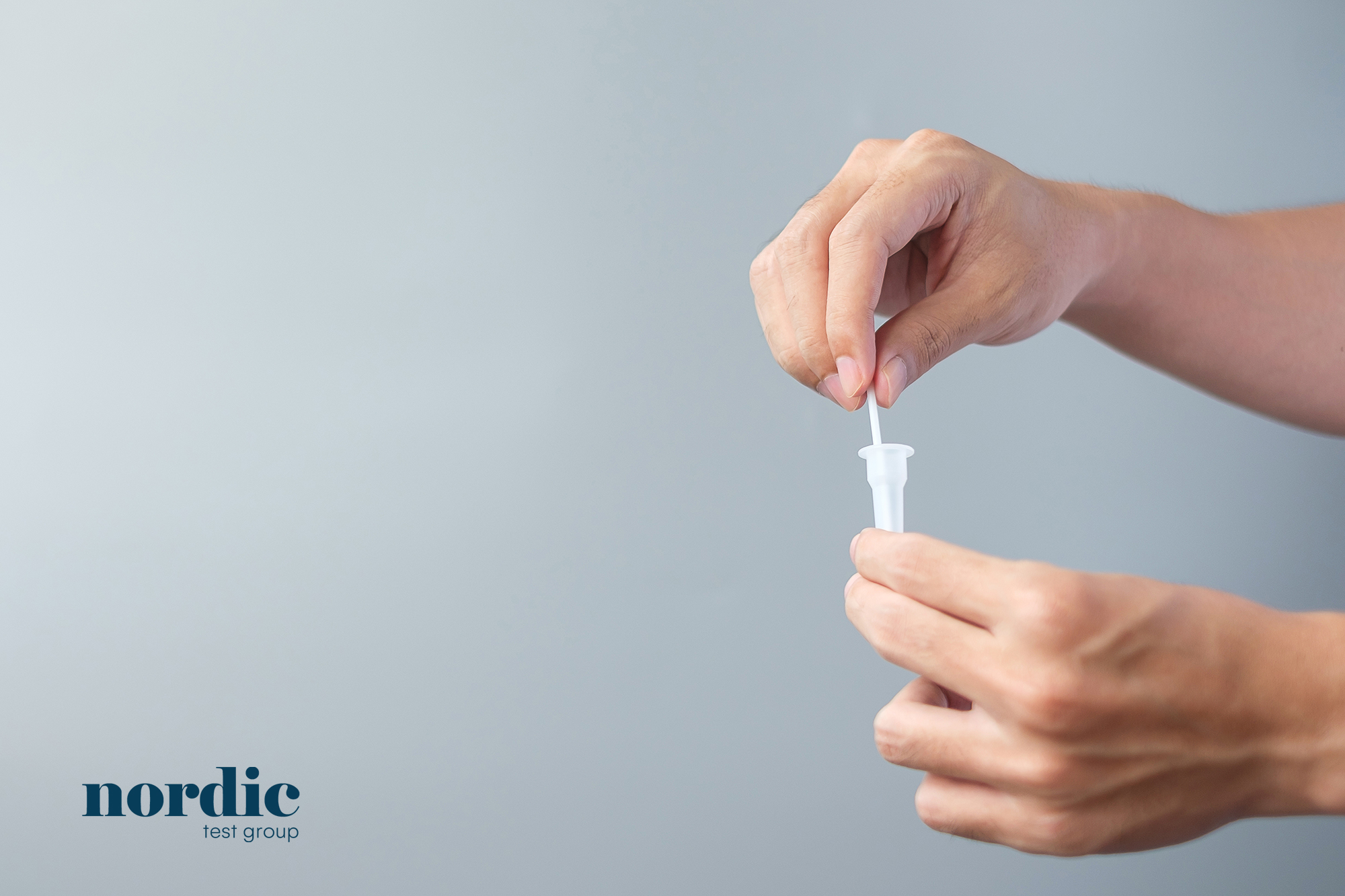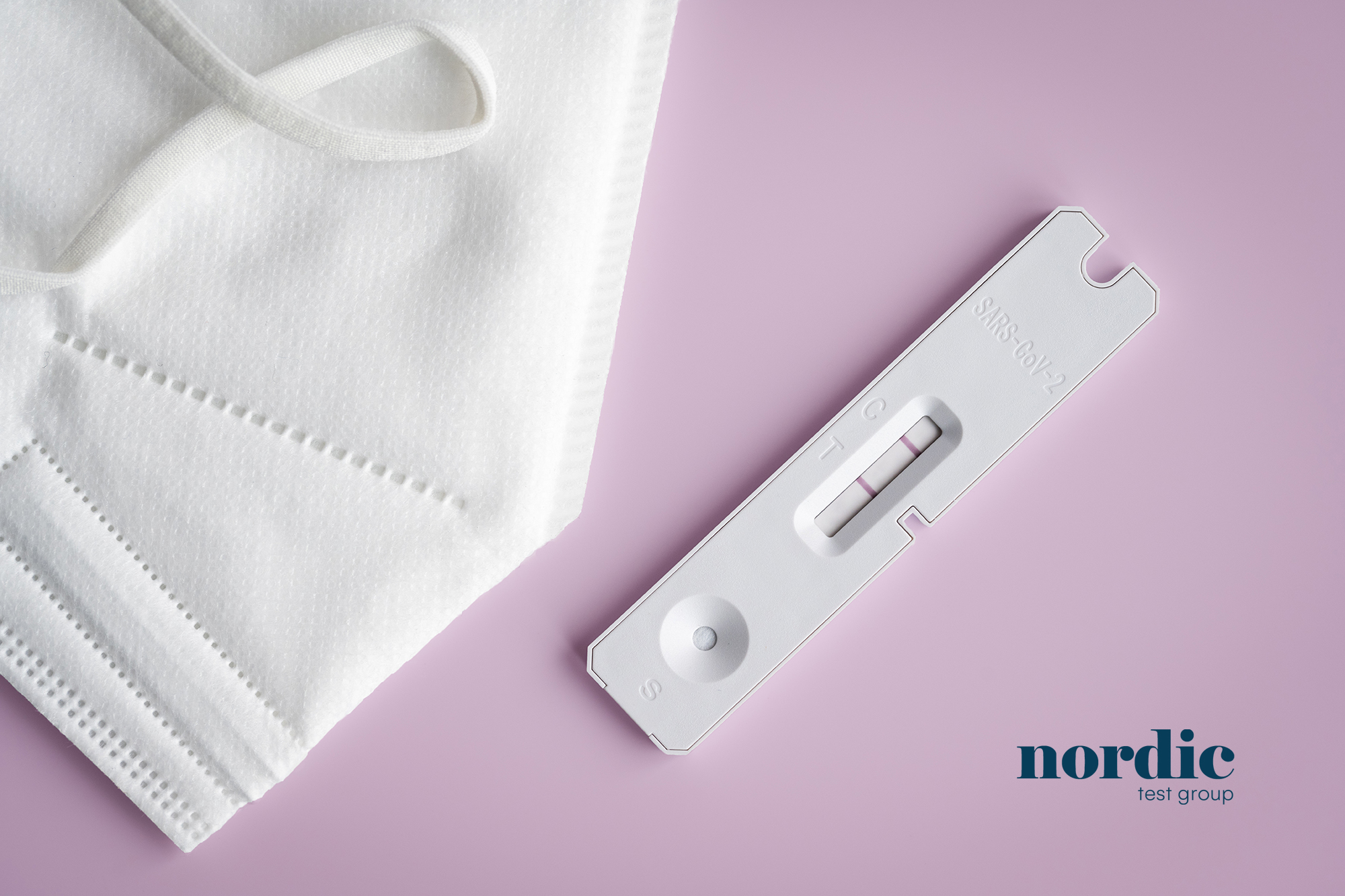Fear of needle sticks – How do you make health tests easier?
Published 2024-02-13 20:15 by Nordictest
It's not uncommon to be afraid of needles, and some people experience such panic that they avoid undergoing health tests. How do you overcome the fear of needle sticks when you actually need to test yourself to determine if you have a disease or suffer from vitamin and mineral deficiencies?
With a fear of needle sticks, routine examinations can become incredibly painful, and there are also home tests that require needle sticks. Fear can lead you to skip health checks that may be so important to you. Let's take a look at the alternatives and strategies you can use to address the fear and to make testing easier without a lot of stress.
Consider the possibility of home testing
Today, it's possible to test yourself for many different diseases and deficiencies at home. It's not just nice to be able to test for sexually transmitted diseases at home because it's private. For those who experience stress from the environment at a clinic, home testing can be a fantastic solution.
Nowadays, you can test everything from cholesterol to blood sugar levels with simple kits. When you need to take a blood sample with a home test, it usually involves very little blood. Perhaps just a few drops, if even that.
With a simple finger prick, you get the amount needed. This can't be compared to a blood sample taken in a tube. Thus, we can see that home testing can be an alternative that doesn't feel as scary as traditional blood tests.
You get a double advantage with the comfort of your home and the possibility of testing anonymously. You get peace and quiet and can often get the result directly at home. When you send tests for analysis at a lab, it's also calm and safe without the need to discuss what disease you're testing for with several different people at a health clinic.

Tests that are needle-free
Before we delve into some strategies for those with needle phobia, we should highlight that there are plenty of tests that don't require blood and needle sticks. It may be possible that what you need to test for is possible without any needles.
Examples of health tests that don't require needle sticks:
| Test | Description | Common Applications |
| Saliva test | Uses a small amount of saliva to detect various conditions or infections. |
Hormone levels, genetic testing, drug testing. |
| Urine test |
Analyzes urine to detect diseases, conditions, or substance use. |
Pregnancy test, drug testing, kidney and urinary tract infections. |
| Breath test |
Measures components in exhaled air. |
H. pylori infection (causes ulcers), alcohol levels. |
| Swab test | Uses a cotton swab to collect samples from the throat, nose, or other body parts. |
Strep throat, influenza, COVID-19, some sexually transmitted diseases. |
| Stool test | Analyses of stool samples to identify problems related to the digestive system such as blood in stool. |
Gut health tests, blood in stool, parasites. |
| Skin scrape |
Involves taking a small sample of skin cells for analysis. |
Fungal infections, skin diseases. |
| Tear fluid analysis |
Uses a small amount of tear fluid to perform tests, often using special strips. |
Eye diseases, some systemic diseases. |
| Transdermal sensors |
Wearable devices attached to the skin to monitor health conditions. |
Blood sugar levels in diabetics, heart rate. |
Some strategies for managing fear of needle sticks
Whether you realize you need to prick to get blood for a home test or if you're going to need a traditional blood test with a needle at a clinic, having a strategy can be helpful. Fear of needles can be managed with the following strategies:
1. Inform the person performing the blood test
Let the person taking your blood sample know that you're afraid of needles. This is not uncommon, and there are nurses who specialize in this. They can perform the blood test in a way that makes you feel calm.
It might involve applying a numbing cream to the area so that you don't feel the prick as well as working on relaxation. When the blood test is carried out step by step in a way that feels calm to you, you can handle it!
2. Work with distraction
If someone else is going to perform a blood test on you, you have free hands for distraction. This is a method that works well for many. You can listen to music, play games on your phone, or perhaps sit and play with a stress ball. Do whatever it takes so you don't focus on the blood sampling itself.
When testing with needle sticks at home, on the other hand, it might be easier because you are very focused instead. You may get the feeling that you are in control, and then maybe it's not as unpleasant at all. Of course, this depends very much on why you find the blood test unpleasant. Fear of needle sticks is normally treated with cognitive behavioral therapy, but in some cases, it can be as simple as managing it with distractions or performing the prick yourself.

3. Learn breathing techniques
Another popular method for those suffering from fear of needle sticks is deep breaths or guided breathing. These can be assisted by the nurse conducting the test or on YouTube. There are also plenty of breathing exercises on Spotify that you can have ready for the test.
With breathing exercises, you can reduce the anxiety you feel while releasing the physical tension. Then it becomes much easier to handle the test even though you dislike the situation.
4. Use numbing cream
We've mentioned this, and there are actually several different numbing creams that you can use to take a blood test without feeling the prick. Normally, this is something a nurse or doctor can apply. But in some cases, you might get a smaller amount that you can use at home before a test.
There are over-the-counter numbing creams like Emla that you can buy if you're worried that needle sticks will be painful during a home test.
5. Exposure therapy
If you have a deeper fear, therapy may be the best route for you. In addition to cognitive behavioral therapy, you can undergo what's called exposure therapy. This is a form of therapy that gradually exposes you to what you're afraid of. It will happen in a controlled way, allowing your anxiety and fear to diminish and perhaps disappear entirely.
